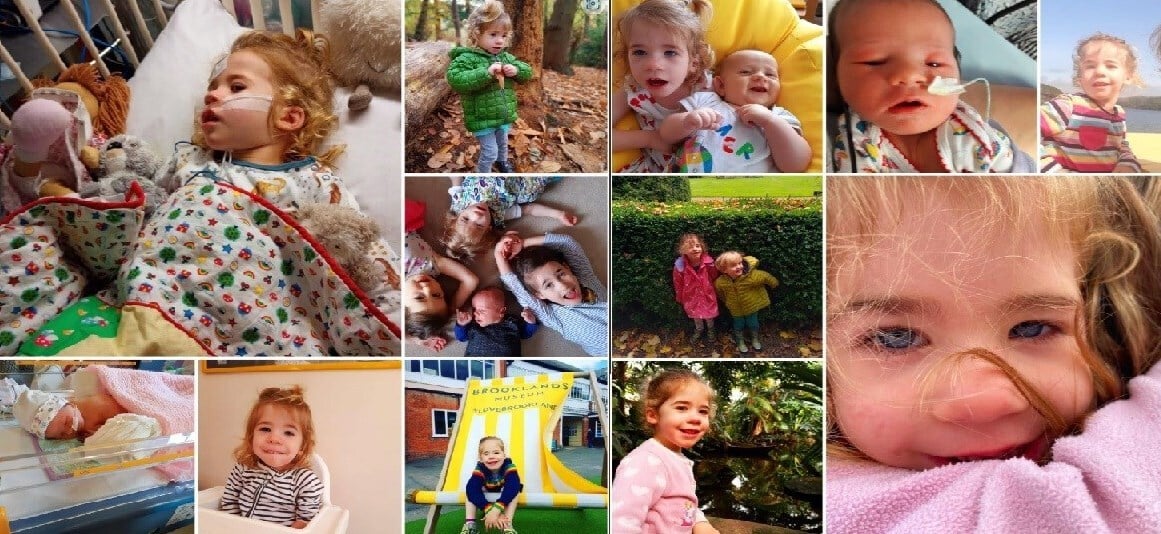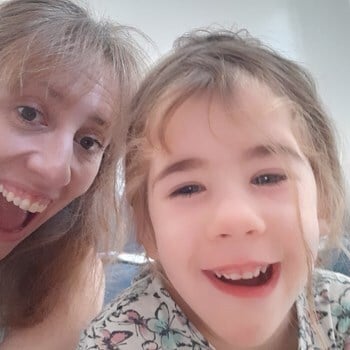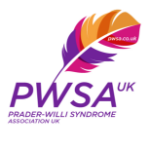Sarah Lynch running for Alice and PWSA
Sarah Lynch
My Story
The headlines - a shorter read about PWSA
Prader-Willi Association UK is a charity supporting children and adults living with Prader-Willi Syndrome (PWS). PWS is a life-long, rare and complex, non-inherited genetic condition effecting about 1:15 000 births in the UK every year. PWS is thought to affect part of the brain called the hypothalamus, which produces hormones and regulates growth and appetite. At some point in childhood a person with PWS loses their ability to feel full after eating and consequently spends their entire life feeling constantly hungry; the medical term for this is hyperphagia. The condition also carries other symptoms such as learning difficulties, behavioural challenges and weak/poor muscle tone known as hypotonia. Currently there is no cure for PWS and no drugs have yet successfully been developed to manage hyperphagia.
Alice’s story - the longer read about why I am doing this
At 7:30pm on the evening of my daughter Alice’s birth and at 7 hours old, she stopped breathing and went blue. I was on the postnatal ward so I pressed the alarm button and then just stood there, helplessly watching five or more doctors and nurses appear within seconds and resuscitate Alice. From that point on, nothing was normal again as far as Alice was concerned. Thankfully, Alice was quickly resuscitated and sent to the Neo Natal ward and initially medical professionals were still certain that Alice was ok as any baby can struggle shortly after birth. However, as the hours ticked by Alice remained asleep; she slept and slept and slept, doubt began to creep in. After 2 days of sleeping, doctors started to investigate what the cause could be; all the tests came back negative so Alice got the all clear and we were sent home. Once home, Alice continued to sleep, she woke for only 1 or 2 hours in 24 and she did not cry, ever. Alice was my third child, so I knew this wasn’t right; surely my daughter should be waking me up throughout the night? How many mothers of a new born baby need to set alarm clocks to feed their child? After 5 days at home a visiting midwife finally listened to my concerns, noted Alice’s weight was dropping and sent us back to hospital, where they took bloods, this time for more serious tests and sent us home again. For the next five weeks I sat at home, waiting for test results and spending most of the day trying to feed a baby that struggled to suck, slept constantly and still did not cry. All I wanted for weeks was to hear Alice cry; most people dread the moment when the baby starts to shriek in the middle of the night; I prayed for it! On Friday 9th November we received a phone call from the hospital asking Tim (my husband) and I to come in to meet with the Doctor on the Monday, they said nothing else and put the phone down. It was a long weekend.
On Monday the 9th, I sat in a small side room with my husband and Alice as I heard the words “Prader-Willi Syndrome” for the first time. The rest of this meeting is a bit of a blur; I remember Tim breaking down next to me as the doctor read out a long list of symptoms and our future outlook changed. The doctor gave us a leaflet and I drove us home in daze, my mind racing; making the all the mental calculations about what this meant for Alice, for Tim and I and our two older children. We didn’t speak until we got home. In the following days, the implications of this diagnosis entirely consumed my thoughts as I struggled to accept it; how on earth would Alice ever be happy if she feels starving all the time? What lengths would she go to, to get at food? What lengths would I have to go to, to stop her from literally eating herself to death? How would this change life for my elder daughters? Would any of us be able to enjoy life any more – surely this was the end of family meals, birthday cakes and Christmas treats? How could such a cruel condition exist? How could my daughter have been so unlucky to have been that one baby in fifteen thousand births to receive this diagnosis – things like this happen to other people, don’t they? The world kept going but my world had stopped. I remember the days following Alice’s diagnosis as the darkest days, filled with fear for a now very uncertain future and grieving for the daughter I’d thought we would have.
In these difficult first weeks, the first glimmer of hope came when I rang the Prader-Willi Association (PWSA). I spoke to a lady called Patsy who had an 11 year old daughter with PWS. She was the first person I had spoken to who actually had real experience of having a child with PWS. She was frank and didn’t shy away from the bad bits but she also made me realise Alice was still Alice. She was not her diagnosis and would be much more than the list of symptoms I had been presented with. Patsy gave me practical information about getting Alice growth hormone as soon as possible (something our local doctor hadn’t known about). She also put us in touch with other mums who had young children and babies recently diagnosed. I learned of a whole community of people; I quickly became good friends with people who I’d never met but had faced the same diagnosis. There was one other baby born within about 6 weeks of Alice in the UK from Scotland; I soon found myself in long phone conversations with these people I had never met but who understood. We were a great comfort to each other as we shared ideas and advice on how best to support our children.
Since then, PWSA has provided us with support on a number of occasions; they have given us advice for the best practice in Alice’s care, her diet and most recently her EHCP application for when she starts school in September. They provide adults and their families with all manner of support to help them manage the daily challenges of living life PWS and to live it well. They run regional networks and support groups, training courses, provide some support for research and are just there for families every step of the way. As a rare condition, which not many people have even heard of, let alone suffer from, PWSA is a small charity. The support they provide however is vital and they have been a life-line for Alice and my family. This is why I am asking and thanking you for your kind support on my journey running the London Marathon. I am not a natural runner and with four children and a full-time teaching job, this is a considerable logistical and physical challenge for me. Twenty six point two miles is a daunting prospect, but one I am determined to achieve.
Finally, an update on Alice now. She is 4 years old and although she has her challenges, she is in many ways a typical happy little girl. She loves to run around (something we weren’t sure she would ever do due to her weak muscle tone) and play chase or hide and seek with her siblings. She loves animals and helps me feed our chickens and cat. She is exceptionally caring and gives the best cuddles. She is beginning to talk and her favourite thing is to shout “Fe Fi Fo” to get me to chase after her. She is nothing like the list of symptoms I was given. Her future may be uncertain and she will face many difficulties as she gets older. However, with the help of PWSA and the support of her family and friends, I am very hopeful she will live a full and happy life, just a little bit differently.
Thanking you for taking the time to read this and for supporting me, wish me luck!!
-
Target
£2,000
-
Raised so far
£7,631
-
Number of donors
104
My Story
The headlines - a shorter read about PWSA
Prader-Willi Association UK is a charity supporting children and adults living with Prader-Willi Syndrome (PWS). PWS is a life-long, rare and complex, non-inherited genetic condition effecting about 1:15 000 births in the UK every year. PWS is thought to affect part of the brain called the hypothalamus, which produces hormones and regulates growth and appetite. At some point in childhood a person with PWS loses their ability to feel full after eating and consequently spends their entire life feeling constantly hungry; the medical term for this is hyperphagia. The condition also carries other symptoms such as learning difficulties, behavioural challenges and weak/poor muscle tone known as hypotonia. Currently there is no cure for PWS and no drugs have yet successfully been developed to manage hyperphagia.
Alice’s story - the longer read about why I am doing this
At 7:30pm on the evening of my daughter Alice’s birth and at 7 hours old, she stopped breathing and went blue. I was on the postnatal ward so I pressed the alarm button and then just stood there, helplessly watching five or more doctors and nurses appear within seconds and resuscitate Alice. From that point on, nothing was normal again as far as Alice was concerned. Thankfully, Alice was quickly resuscitated and sent to the Neo Natal ward and initially medical professionals were still certain that Alice was ok as any baby can struggle shortly after birth. However, as the hours ticked by Alice remained asleep; she slept and slept and slept, doubt began to creep in. After 2 days of sleeping, doctors started to investigate what the cause could be; all the tests came back negative so Alice got the all clear and we were sent home. Once home, Alice continued to sleep, she woke for only 1 or 2 hours in 24 and she did not cry, ever. Alice was my third child, so I knew this wasn’t right; surely my daughter should be waking me up throughout the night? How many mothers of a new born baby need to set alarm clocks to feed their child? After 5 days at home a visiting midwife finally listened to my concerns, noted Alice’s weight was dropping and sent us back to hospital, where they took bloods, this time for more serious tests and sent us home again. For the next five weeks I sat at home, waiting for test results and spending most of the day trying to feed a baby that struggled to suck, slept constantly and still did not cry. All I wanted for weeks was to hear Alice cry; most people dread the moment when the baby starts to shriek in the middle of the night; I prayed for it! On Friday 9th November we received a phone call from the hospital asking Tim (my husband) and I to come in to meet with the Doctor on the Monday, they said nothing else and put the phone down. It was a long weekend.
On Monday the 9th, I sat in a small side room with my husband and Alice as I heard the words “Prader-Willi Syndrome” for the first time. The rest of this meeting is a bit of a blur; I remember Tim breaking down next to me as the doctor read out a long list of symptoms and our future outlook changed. The doctor gave us a leaflet and I drove us home in daze, my mind racing; making the all the mental calculations about what this meant for Alice, for Tim and I and our two older children. We didn’t speak until we got home. In the following days, the implications of this diagnosis entirely consumed my thoughts as I struggled to accept it; how on earth would Alice ever be happy if she feels starving all the time? What lengths would she go to, to get at food? What lengths would I have to go to, to stop her from literally eating herself to death? How would this change life for my elder daughters? Would any of us be able to enjoy life any more – surely this was the end of family meals, birthday cakes and Christmas treats? How could such a cruel condition exist? How could my daughter have been so unlucky to have been that one baby in fifteen thousand births to receive this diagnosis – things like this happen to other people, don’t they? The world kept going but my world had stopped. I remember the days following Alice’s diagnosis as the darkest days, filled with fear for a now very uncertain future and grieving for the daughter I’d thought we would have.
In these difficult first weeks, the first glimmer of hope came when I rang the Prader-Willi Association (PWSA). I spoke to a lady called Patsy who had an 11 year old daughter with PWS. She was the first person I had spoken to who actually had real experience of having a child with PWS. She was frank and didn’t shy away from the bad bits but she also made me realise Alice was still Alice. She was not her diagnosis and would be much more than the list of symptoms I had been presented with. Patsy gave me practical information about getting Alice growth hormone as soon as possible (something our local doctor hadn’t known about). She also put us in touch with other mums who had young children and babies recently diagnosed. I learned of a whole community of people; I quickly became good friends with people who I’d never met but had faced the same diagnosis. There was one other baby born within about 6 weeks of Alice in the UK from Scotland; I soon found myself in long phone conversations with these people I had never met but who understood. We were a great comfort to each other as we shared ideas and advice on how best to support our children.
Since then, PWSA has provided us with support on a number of occasions; they have given us advice for the best practice in Alice’s care, her diet and most recently her EHCP application for when she starts school in September. They provide adults and their families with all manner of support to help them manage the daily challenges of living life PWS and to live it well. They run regional networks and support groups, training courses, provide some support for research and are just there for families every step of the way. As a rare condition, which not many people have even heard of, let alone suffer from, PWSA is a small charity. The support they provide however is vital and they have been a life-line for Alice and my family. This is why I am asking and thanking you for your kind support on my journey running the London Marathon. I am not a natural runner and with four children and a full-time teaching job, this is a considerable logistical and physical challenge for me. Twenty six point two miles is a daunting prospect, but one I am determined to achieve.
Finally, an update on Alice now. She is 4 years old and although she has her challenges, she is in many ways a typical happy little girl. She loves to run around (something we weren’t sure she would ever do due to her weak muscle tone) and play chase or hide and seek with her siblings. She loves animals and helps me feed our chickens and cat. She is exceptionally caring and gives the best cuddles. She is beginning to talk and her favourite thing is to shout “Fe Fi Fo” to get me to chase after her. She is nothing like the list of symptoms I was given. Her future may be uncertain and she will face many difficulties as she gets older. However, with the help of PWSA and the support of her family and friends, I am very hopeful she will live a full and happy life, just a little bit differently.
Thanking you for taking the time to read this and for supporting me, wish me luck!!






